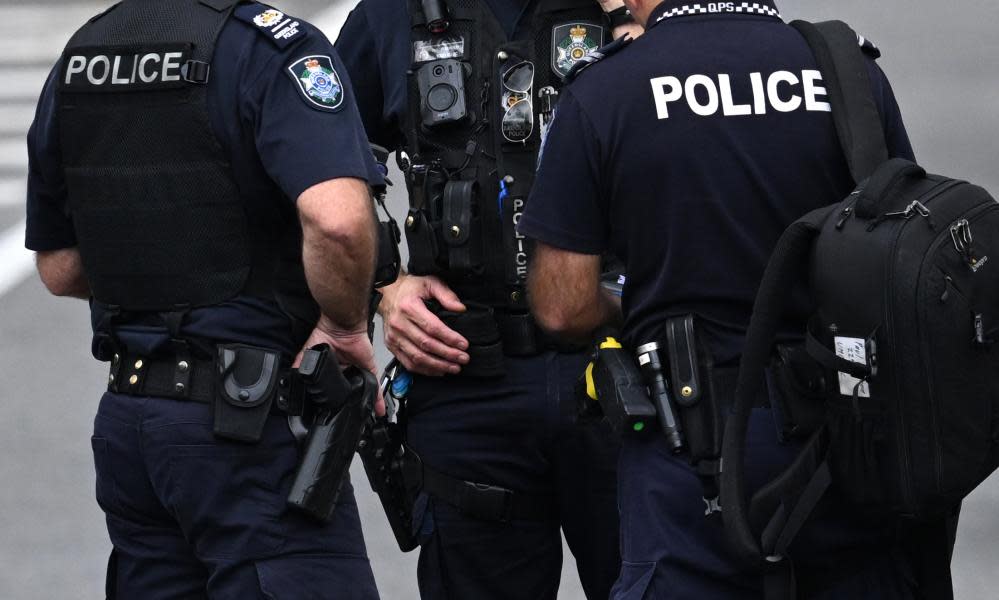Racial profiling fears raised as Queensland seeks to expand police search powers

Queensland human rights organisations have warned the planned expansion of police powers by allowing them to search people for weapons could restrict personal freedoms and lead to racial profiling.
The police powers and responsibilities amendment bill – also known as Jack’s Law – will allow Queensland officers to search people for weapons on public transport and in nightclub precincts, without reasonable suspicion to do so, using a metal detection wand.
The legislation was introduced into parliament last year after a two-year knife detection trial on the Gold Coast, which was sparked by the death of 17-year-old Jack Beasley in 2019.
A parliamentary committee is currently examining the legislation, with a public hearing held on Monday.
Related: Queensland police sought youth of ‘certain ethnic backgrounds’ with new search powers, review finds
In a submission to the bill, the Queensland Human Rights Commission described the legislation as “a significant limitation on several rights, as well as being contrary to the common law protection that a person may only be searched where there is a reasonable suspicion”.
The president of the Queensland Council for Civil Liberties, Michael Cope, also raised concerns about the proposed laws, saying they authorise “mass, suspicion-less, warrantless magnetometer searches”.
Cope said granting such powers would “inevitably result in unwarranted invasions of privacy” and there was no evidence that such powers would reduce knife crime.
He also pointed to national and international research that shows police discretion on who to search is “often based on generalisations and negative stereotypes that are in part attributable to ethnic bias”.
Janet Ransley, the director of the Griffith Criminology Institute at Griffith University, said her organisation had evaluated the trial and discovered there were problems in the way that Queensland police recorded the First Nations status of people.
“That made it very hard for us to draw conclusions about the extent to which First Nations people were [or if they were] overrepresented,” Ransley told the hearing on Monday.
DV Connect said they would not support the bill after both the women’s safety and justice taskforce and the commission of inquiry into Queensland police responses to domestic violence “identified systemic bias that has resulted in either over-policing or under-policing”.
“This cannot be ignored when considering the allocation of broader powers to police in their engagement with the public,” they wrote in their submission.
DVConnect said it was concerned the measure would only increase the criminalisation of First Nations people, in turn reducing their willingness to engage police.
But at the public hearing, Jack Beasley’s parents, Brett and Belinda, who represent the Jack Beasley Foundation, said they supported the legislation and would continue to advocate for knife detection powers to be made permanent.
Related: Queensland police to get expanded powers to randomly scan people for knives
“Members of the foundation have gone out with the police on numerous occasions over the past few years,” Belinda Beasley said.
“It is not invasive, it’s minimal time, it is educating the people that are being monitored and it is keeping the community safe.”
Queensland police’s acting deputy commissioner, Mark Wheeler, said the trial had seen hundreds of dangerous weapons taken off the streets.
“There is absolutely no reason why a law-abiding citizen needs to arm themselves with knives, knuckledusters or screwdrivers, as we have seen on the Gold Coast,” Wheeler said in a statement.
The parliamentary committee will table a report on the proposed legislation on 17 February.

 Yahoo News
Yahoo News 
